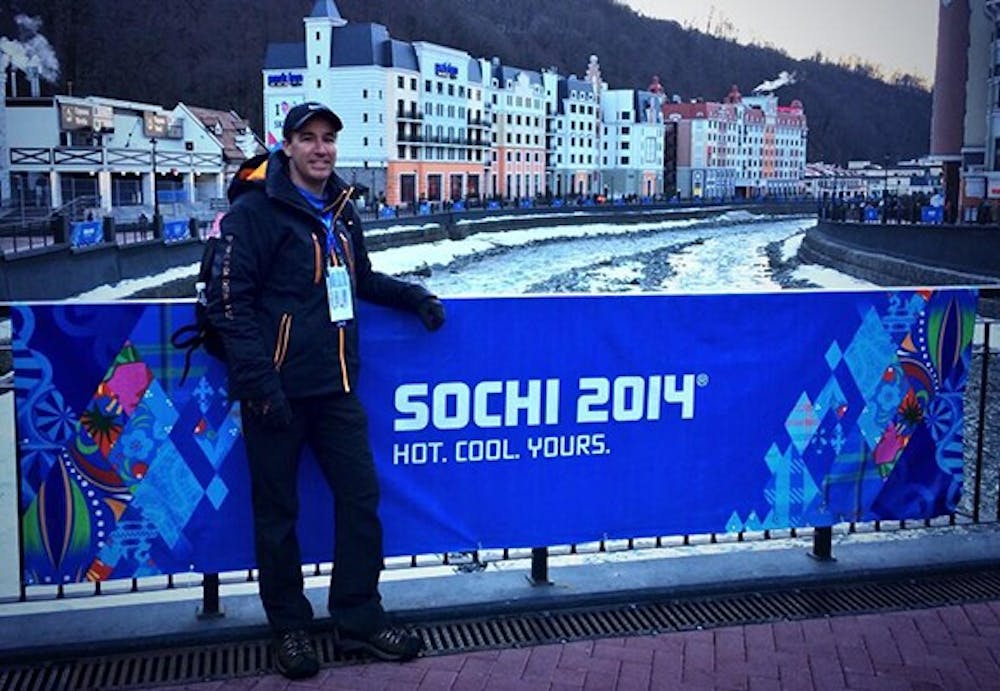There weren’t any athletes from North Carolina competing in the 2014 Winter Olympics, but there was at least one Tar Heel in Sochi, Russia.
Kevin Best, just returned from working at his ninth Olympics as an information manager. Before he flew back, Best took a few minutes to answer questions from senior writer Brooke Pryor via email.
Daily Tar Heel: As an information manager, what’s your role in the games?
Kevin Best: My role is to organize and coordinate all rights-holding broadcasters’ needs at the alpine ski venue. At this venue, I have a staff of 13, which includes two Americans, one South African and several Russian student workers. Americans recognize NBC as the U.S. rights holder, but nearly every country in the world has a rights-holding national broadcaster. We assist those rights holders in several areas, including commentary positions, camera positions and, perhaps most importantly, the mixed zone, where athletes and broadcasters “mix” for interviews. When (UNC football coach) Larry Fedora walks off the field, the ESPN sideline reporter gets the first interview since they own the rights. Now imagine a rights-holding broadcaster for every country in the world having a sideline reporter and wanting that first interview. We help organize that chaos.
DTH: How did you get into working the Olympics?
KB: I first worked the 1996 Olympics in Atlanta. After graduating from North Carolina, I was an intern in the UGA Sports Information Office and the group that coordinated broadcaster needs was looking for assistance. I jumped at the opportunity and have been fortunate to be able to work at the Olympic Games (summer and winter) eight more times.
DTH: Have you experienced any of the mishaps that have gotten a lot of attention in the media?
KB: For the most part, my accommodations were outstanding. I stayed in the mountains in the area known as Rosa Khutor. It’s a good ski village with the potential to be great. The hotel had a kitchenette with a refrigerator, stove and brand new cooking utensils. I never used them, but they were shiny and new. The refrigerator kept my water and Coke Light (Diet Coke) cold so I couldn’t ask for much more. The only mishap was a lack of water one day that affected every facility in Rosa Khutor. That was quickly remedied over the course of the day while we were at the alpine venue.
DTH: How does working in college athletics communications help your work there?



